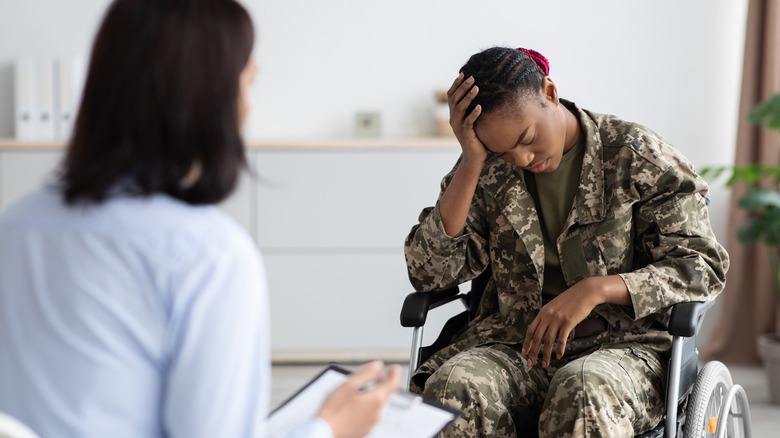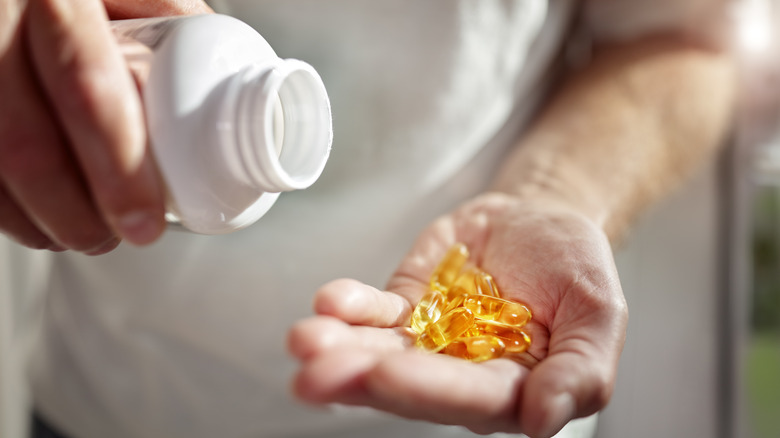How Vitamin D May Reduce The Risk Of Suicide Attempts And Self-Harm
Vitamin D deficiency has long been associated with a higher risk of depression and anxiety (via Healthline). Now, vitamin D supplementation could also reduce the risk of suicide and self-harm, as per a 2023 study published in PLOS ONE.
While our ancestors may have been doing more work outdoors under the sun, those who spend considerably more time indoors limit their exposure to sunlight (via Harvard Health Publishing). This lack of sunlight impacts levels of vitamin D since the sun's ultraviolet B (UVB) rays are needed to turn a chemical in the skin into vitamin D3. Vitamin D3 then gets processed by the liver and kidneys, turning it into an active form of the vitamin.
Vitamin D is one of four fat-soluble vitamins, and it's one that's actually made by our bodies. The only foods that naturally contain it are fish and egg yolks, and even once we consume it through foods, our bodies still need to convert it to the active form. Keep in mind, vitamin D deficiencies are more common in non-white people since skin pigmentation can reduce vitamin D production by over 90%. It's also common in those who have issues with digestion and absorption, take certain medications, and people who are gradually getting older. However, in the recent study, U.S. veterans explored a connection between vitamin D deficiency, vitamin D supplementation, and the risk of suicide attempts and self-harm.
Vitamin D seemed to reduce suicidality in veterans
In the study, over 30% of veterans were considered to be vitamin D deficient and at high risk for attempting suicide. Researchers looked at the records of 1.3 million veterans at the Department of Veterans Affairs (VA) from 2010 to 2018 (via WebMD). During the study, 490,885 veterans were given vitamin D3 supplements, while 169,241 were given vitamin D2 supplements. Compared to those who didn't take any supplements, veterans who received D3 had around a 45% lower risk of suicide attempts and self-harm, and those who received D2 had about a 48% lower risk. Those who were most deficient had a 64% lower risk when taking D3. Additionally, Black veterans who received D3 had a 64% lower risk. On the other hand, those who received D2 had about a 58% reduced risk.
While researchers aren't sure why vitamin D seems to reduce the risk of suicide attempts and self-harm, there's a need for vitamin D screenings in those showing signs of depression, anxiety, or self-harm, especially in people of color, according to study co-author Dr. Jason Gibbons (via WebMD). Vitamin D levels are usually only tested when a patient comes in with a condition that's typically associated with low vitamin D, but testing those who show mood or anxiety symptoms may also save lives.
If you or anyone you know is having suicidal thoughts, please call the National Suicide Prevention Lifeline by dialing 988 or by calling 1-800-273-TALK (8255).

